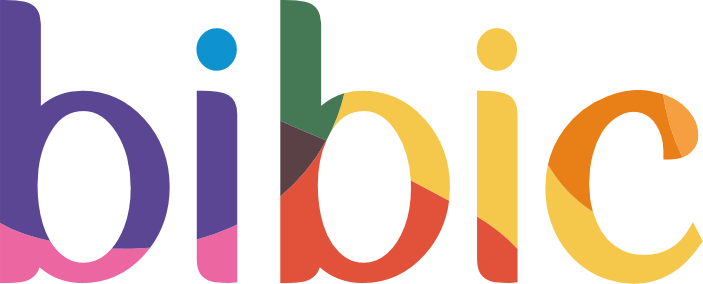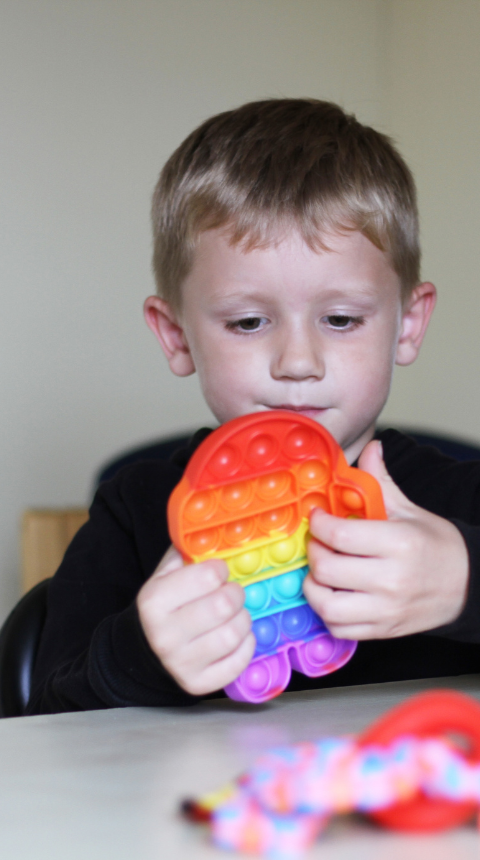
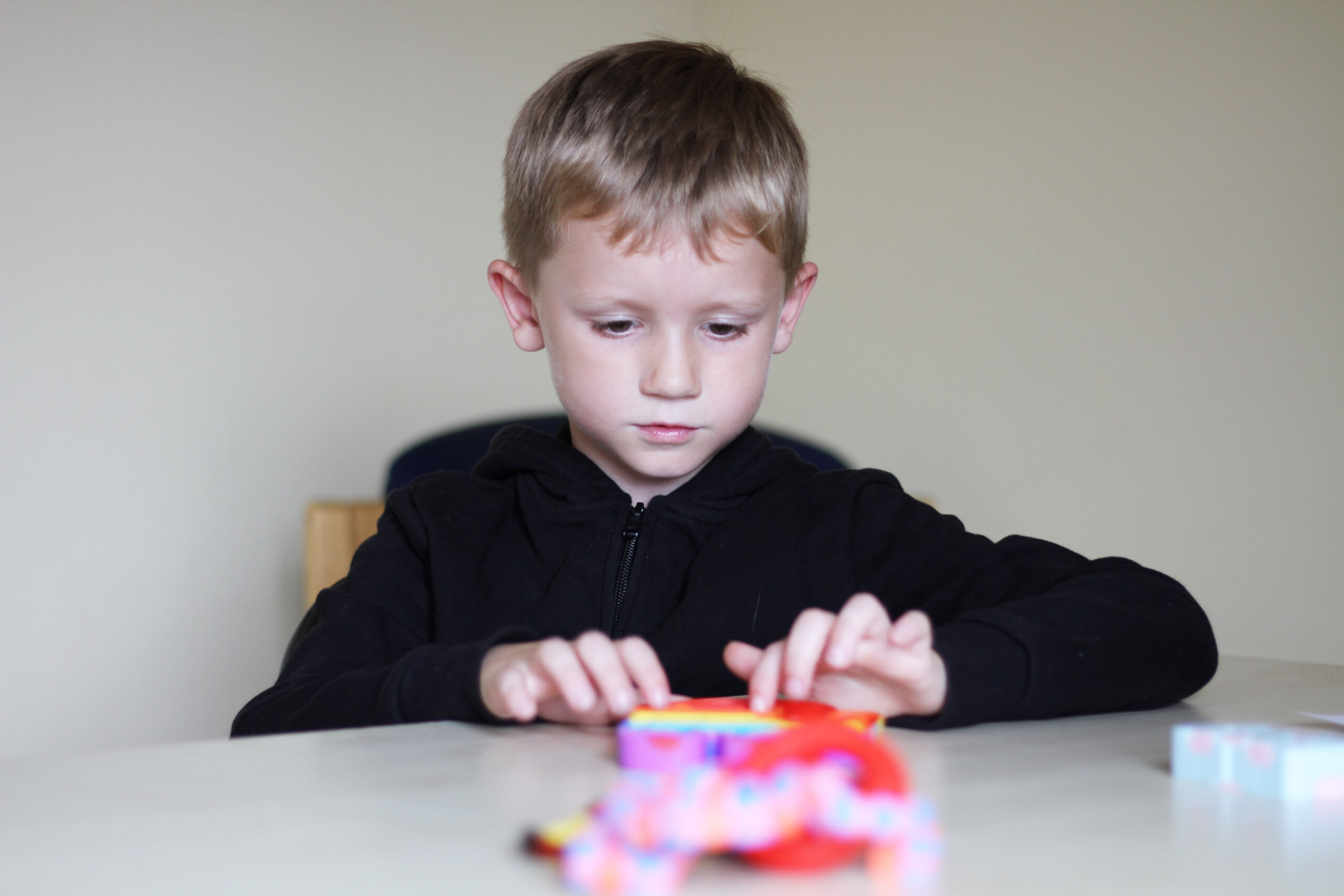
Our developmental therapy
Transforming lives through developmental therapy
Our holistic approach
At bibic we look at every child and young adult holistically and focus on all concerns, difficulties and symptoms, linking them together if we can.
We work with the family as a whole to find techniques that will fit into busy lives and support the family unit as much as the individual young person, listening to everyone. At bibic, our developmental therapists are good listeners and take on board all concerns, difficulties and needs; they are very understanding and do not judge. They recognise that everybody is doing the best they can.
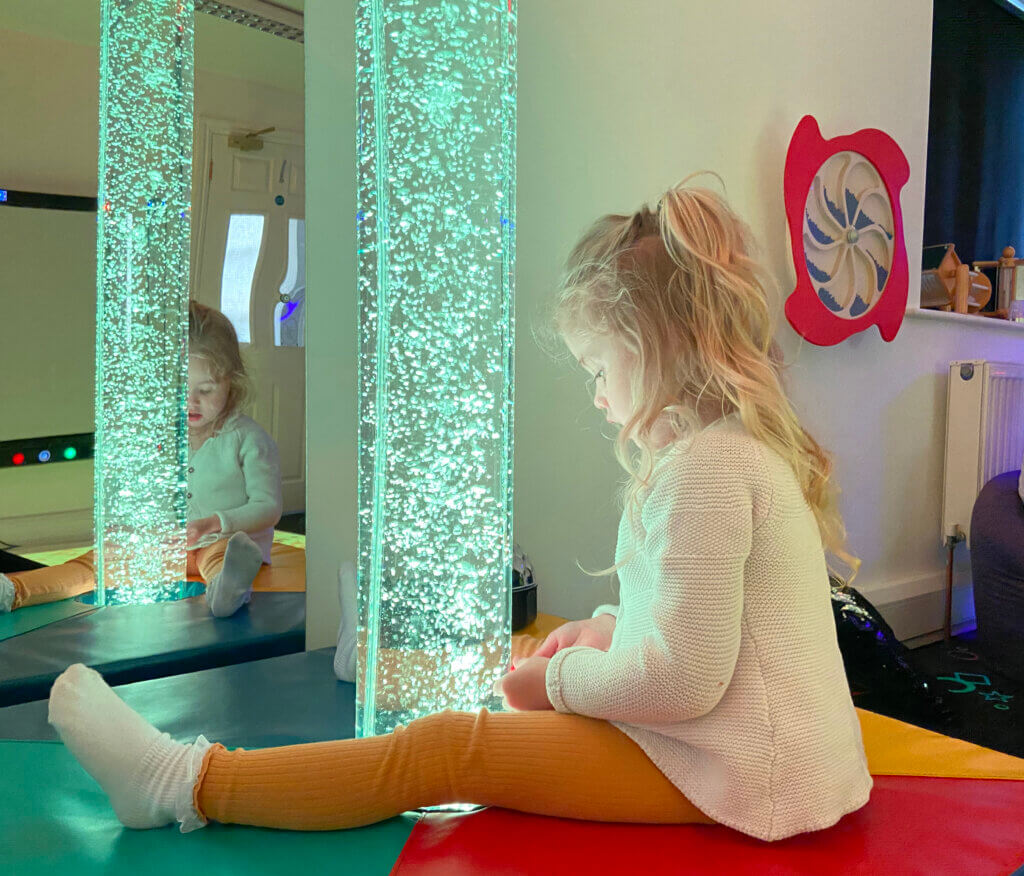
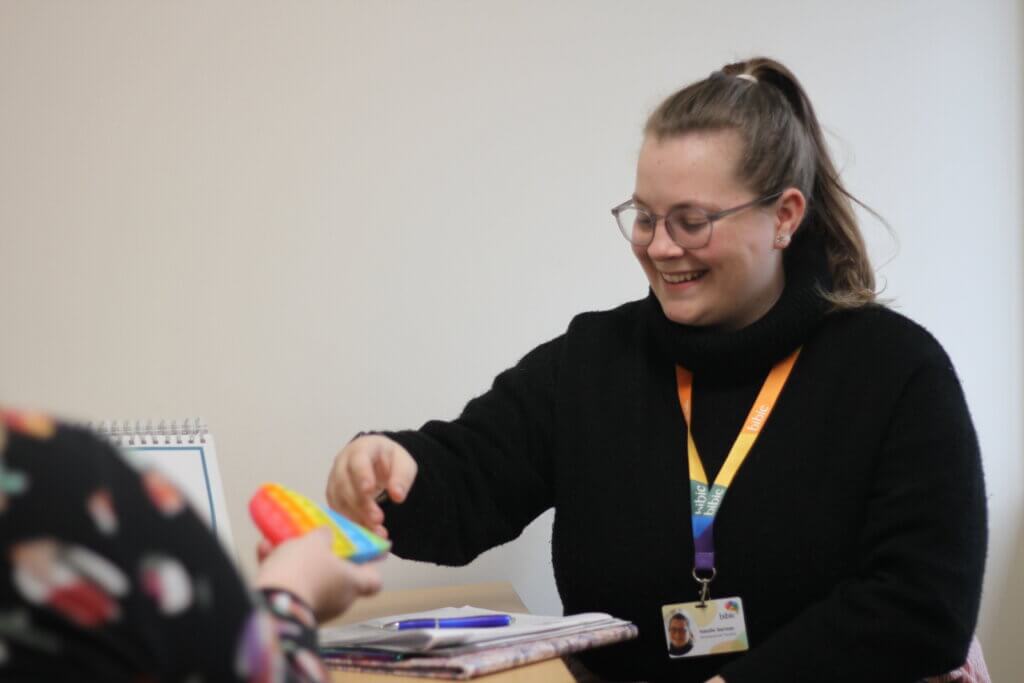
bibic developmental therapy – how it works
bibic’s developmental therapy programme is based upon neuroplasticity, or brain plasticity, which refers to the brain’s ability to undergo alterations in response to internal and external environmental changes (May, Hajak et al 2007). Implemented on a daily basis at home, the individualised therapy plan helps to develop new pathways within the child or young adult’s brain. Through daily practice, they are encouraged to exercise their body and mind and learn how to cope more effectively with the daily demands placed upon them. Parents learn how to communicate and interact with them more effectively so that the whole family benefits.
Every person’s brain is unique, which is why our plans and strategies are individualised to each young person and their family, tailoring everything we do to their needs and to support the family.
bibic Developmental Therapists
Our team of Developmental Therapists have a wealth of expertise and a wide variety of specialisms, accreditations and qualifications, including:
Diplomas in Childcare and Education, Honours degrees in all age ranges and abilities within Education, PGCE’s in middle and secondary education, Professional Practice and Psychology, Certificate of Competence in Education Testing (CCET), Masters degrees in Psychology and Forensic Psychology.
All new therapists are trained in house for 6 months before they assess on their own.
Our in-house training covers areas such as cognitive and psychological development including sensory processing, communication, social development, gross and fine motor skills, and behaviour as well as over 50 years worth of experience passed on from previous bibic Therapists.
Many of our therapists are also trained in communications techniques such as PECs and Makaton stages 1-4. Some also undergo additional training such as Johansen Individualised Auditory Stimulation allowing them to deliver this programme and Irlen Syndrome assessments. Our therapist also undergo continuous CPD training in new and developing areas.
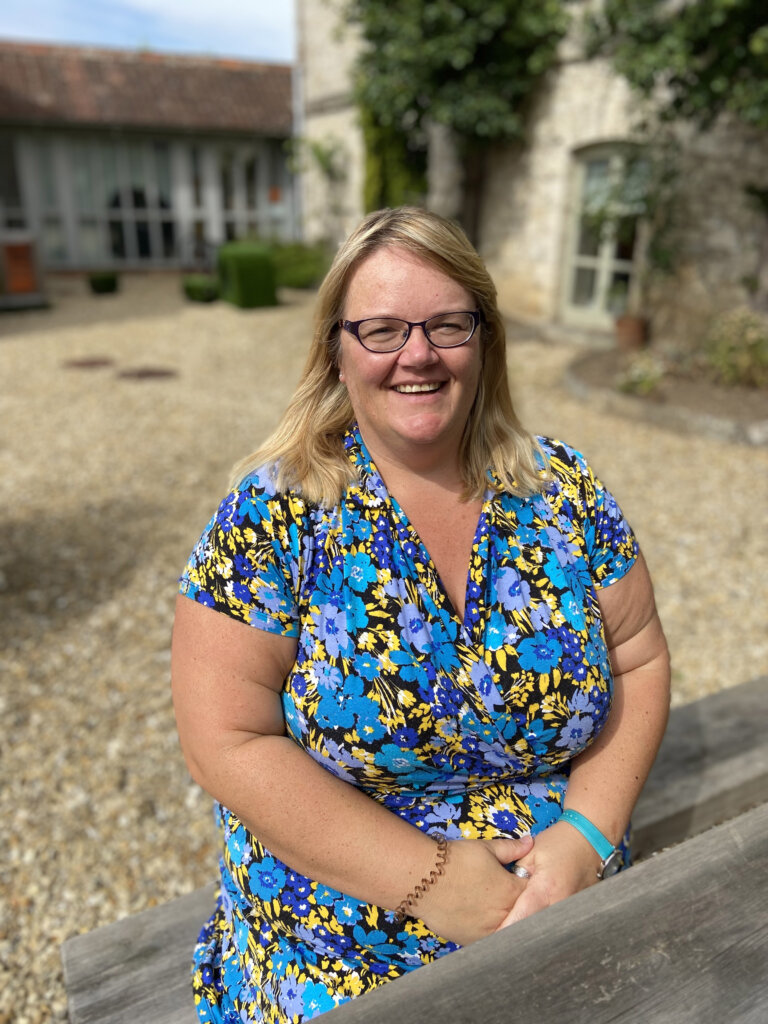
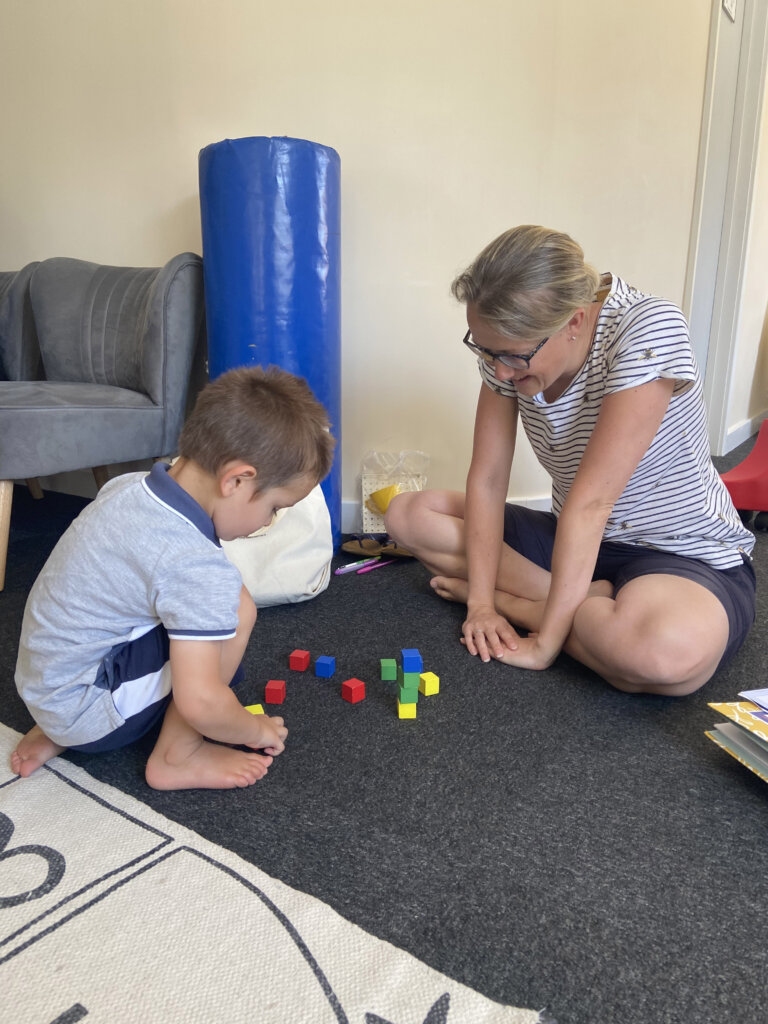
The assessment process – what to expect
When a young person visits for an assessment, a family will work with one of our Developmental Therapists, discuss relevant history and decide with the parents/carers the best course of action to take.
The bibic assessment consists of a comprehensive testing process using a wide range of recognised and standardised tests. These tests are considered highly reliable and valid and enable us to compare a young person’s ability to their peer group and accurately measure progress.
We look at development as a whole and may cover the following areas of development as part of the assessment process:
- Underlying ability (IQ and non-verbal reasoning skills)
- Language comprehension (understanding)
- Expressive language (speech)
- Working memory (the ability to hold information in your mind whilst carrying out an activity e.g. listening to someone talk whilst taking notes)
- Visual perception skills (the way your brain interprets visual information)
- Motor skills (movement – for example balance, coordination and handwriting)
- Visual motor integration (the ability to use visual and motor skills together)
- Sensory processing (this refers to how the brain registers, interprets and uses information from the sensory systems; these include sight, hearing, touch, smell, body awareness and balance).
A Therapist will use their professional judgement to identify the specific tests to use, dependent on a young person’s abilities, presenting difficulties and their parents’/carers’ main concerns. Upon completion of the assessment parents/carers are given a full verbal explanation of the test results and how this may be impacting upon their child or young adult’s development.
We also look at sensory processing to assess whether they are typical, under responsive or over responsive. If required, the Therapist will then put together a sensory programme that suits the family and address the young person’s difficulties.
Individualised developmental therapy programme
After an assessment, the Therapists meet to discuss each case; this way, every young person is getting as much knowledge and experience across disciplines that bibic can offer. An extensive therapy programme is then put together to address their needs and parents/carers are provided with a detailed therapeutic programme for implementation at home and school to support their child or young adult with the difficulties identified during assessment.
Results are included in a comprehensive report following the assessment which clearly identify the developmental levels they have reached. The Therapist will also give a full verbal explanation of the results during the assessment.
In this plan strategies and interventions are detailed that are needed to support the young person. These strategies fit into the following categories:
- Sensory processing interventions
- Communication interventions
- Support for the school/learning environment; and
- Additional interventions such as sleep solutions, auditory stimulation and behaviour support and other areas as required.
The sensory processing interventions are carefully constructed strategies to help the young person better regulate themselves and to help them process sensory information more effectively. The other parts of the therapy plan are specifically designed to enable them to become more independent and to be more settled on a day-to-day basis. As part of the detailed report, we provide strategies for schools to support them within a classroom and how to empower them with their learning.
We make sure that parents/carers are given training by our Therapists to enable them to do the techniques effectively at home, and each family is provided with a file of information to help support their young person at home; this information is specifically tailored for their needs, and no two programmes are the same. The information is devised by our bibic trained Therapists and has been developed over many years of experience.
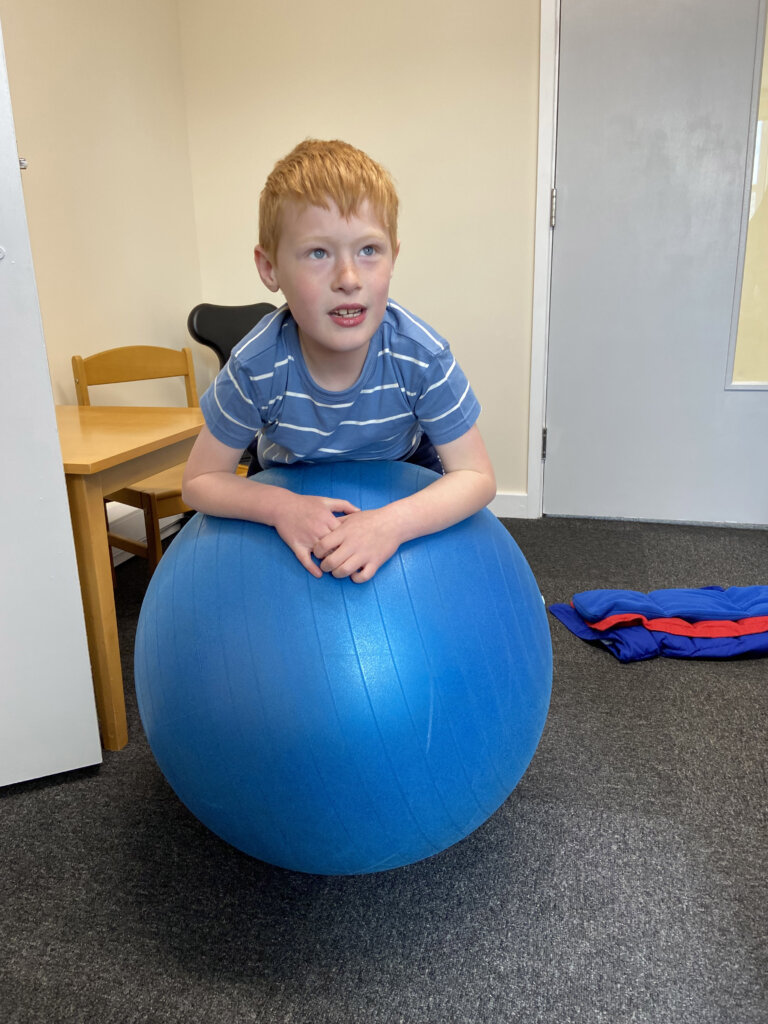
Make an enquiry
Get in touch today and our Family Services team will get back to you as soon as possible to discuss the right support for you and your family
